World's Most Corrupt Leaders & Politicians


Corruption is a major concern around the world and some political leaders remain at the heart of scandals involving bribery, embezzlement, and power abuse. Over the years, there have been numerous occasions when different heads of state have abused their power for personal and political advantage.
Corrupt leaders and politicians have plagued the world since the creation of organized societies. In the modern era, this has escalated as more money and wealth have circulated the globe.
What Is A Corrupt Leader?
A corrupt leader is anyone in a position of power within a government that uses their influence to illegally benefit themselves or someone else. Their actions typically result in a lack of transparency, accountability, and widespread harm to the economy and society. Corrupt leaders often maintain their power by silencing opposition and manipulating the system to protect their interests. A common example of corruption is embezzlement; where leaders appropriate funds from public projects or schemes and funnel them into their own pockets.
Acts of corruption represent an affront to the ideals of a healthy democracy and therefore, corrupt leaders become disgraced in their countries, with some even facing formal corruption charges.
What Do You Call A Corrupt Government?
The formal term for a corrupt government used in political science is a kleptocracy. Corruption is present in most governments across the world, occurring at higher levels in some and lower levels in others. However, this doesn’t mean every country can be classed as a kleptocracy. What sets kleptocracies apart from other governments is the lack of public accountability and legal prosecution for acts of corruption.
Those who indulge in corrupt activities are called kleptocrats and they are the main beneficiaries of their actions. However, a key feature of kleptocracies is the presence of cronies. Cronies are the close allies and friends of kleptocrats who are deliberately appointed to positions of power in order to support their regime. In return for their support, cronies also reap rewards such as money, fame, or power.
What Is Corruption?
Corruption takes many forms, but at its most basic it is an illegal abuse of power that takes advantage of public trust to benefit an individual or small minority. Corruption is seen as a disease within societies that not only undermines public trust in governments but also perpetuates poverty and other social ills. The eradication of corruption is seen by organizations like the UN as a major factor in creating more equal systems of wealth and increasing human rights standards.
What Are the Most Common Corruption Types?
- Embezzlement - the misposition of funds that have been entrusted to one's care, most often by an employee or a public official.
- Bribery - this involves accepting money or favours to make certain political decisions, such as passing laws
- Cronyism - appointing friends and political allies with government positions, contracts, or other benefits to secure loyalty and control of power.
- Kickbacks - when a commission is granted from any government contracts so they can be facilitated.
- Vote Buying - the act of offering money or benefits to voters in return for their votes, compromising the integrity of democratic systems.
- Political Patronage - assigning government positions, contracts, or other benefits in order to gain political support or votes.
Perhaps the most frequent type of corruption is embezzlement, as described above, which comes hand-in-hand with money laundering. Money laundering is the process of hiding the origin of illegal funds to evade being caught. For example, if a person gains a large sum of money through embezzlement, this sudden income could look suspicious to the authorities that deal with corruption. To make it more likely to go undetected, this person could set up a fake business to be paid by fake customers using the embezzled funds. By doing this, the income looks legitimate.
Corruption isn’t always primarily about money; many countries are plagued by political corruption that focuses on power and influence. Rigged elections, where the outcome is already predetermined as a result of bribery and voter fraud, as well as cronyism are both examples of how power can be abused to benefit a certain group of people. If unchallenged, this can lead to heavily unfair societies that rarely see any change and are overseen by dictators with absolute power.
These are the most corrupt leaders according to recent reports.
1. Bashar al-Assad - President of Syria (2000 - 2024)
Source: The New Arab
Syrian leader Bashar al-Assad has been associated with widespread corruption during his rule and is a corruption winner of 2024, according to the Organized Crime and Corruption Reporting Project (OCCRP).
Since 2012, OCCRP’s “Person of the Year” award has been given to those who have the biggest impact in causing chaos globally through organized corruption and crime. The winner is chosen by an expert panel of judges across civil society, academia, and journalism.
Some of his violations were connected to human rights, torture, murders, mass arrests, the use of chemical weapons, etc.
Funded through the production of the Captagon drug and other illicit activities such as human trafficking, cigarette smuggling and antiquities theft, Assad's regime has accumulated billions of dollars to uphold his oppressive authoritarian regime while promoting violence, the drug trade, and criminal activities throughout the country.
His regime is also known for embezzlement and the diversion of public funds. His family and close allies have benefited from profitable government contracts, often in key sectors like construction and energy.
The Assad government’s abuse of public resources, particularly during the ongoing civil war, has intensified the economic crisis in Syria and led to international sanctions. These practices have contributed to the country’s financial instability and severe poverty.
2. Mian Muhammad Nawaz Sharif - Prime Minister of Pakistan (1990-1993, 1997-1999, 2013-2017)
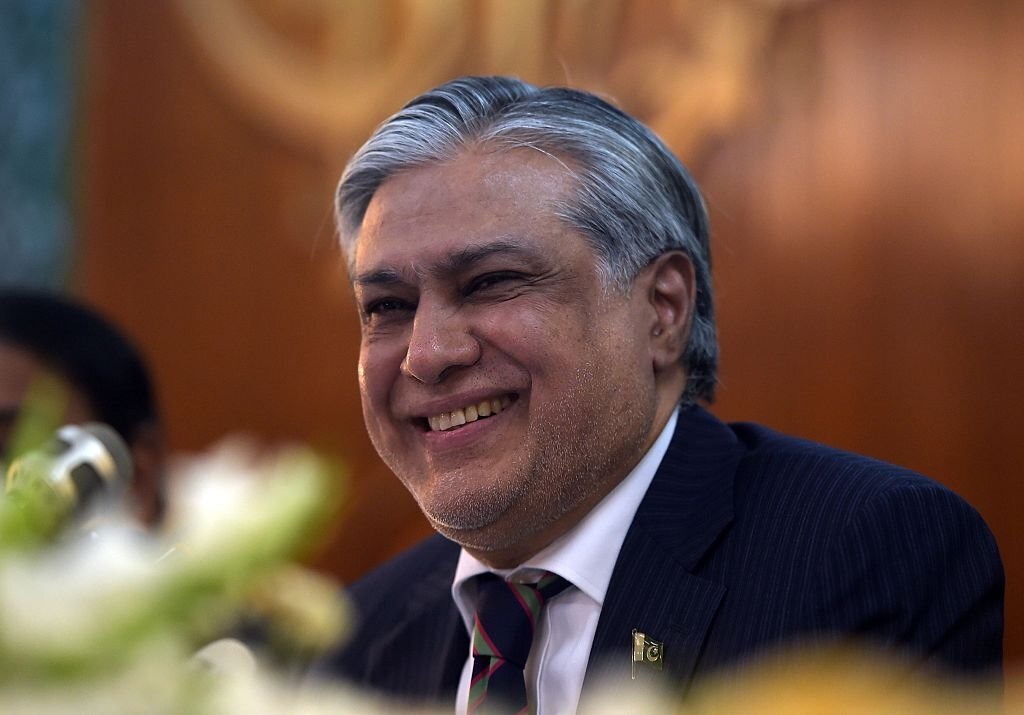
Source: PakistanToday
The former Prime Minister of Pakistan has faced multiple accusations of corruption throughout his political career. A key incident is the 2016 Panama Papers leak. It disclosed that Nawaz Sharif’s family owned offshore companies and assets that were not disclosed in official documents.
After a Supreme Court ruling in 2017, Nawaz Sharif has been disqualified from office due to corruption charges. He and his family have been blamed for money laundering, embezzlement, and misusing public funds for personal gain.
In 2018, he was sentenced to ten years in prison after he was found guilty of a corruption case related to luxury apartments in London. Despite all the controversies and challenges he has faced, Nawaz Sharif continues to be a significant figure in Pakistani politics, leading his party, the Pakistan Muslim League (Nawaz), from exile in London.
3. Vladimir Putin - President of Russia (1999 - 2000, 2000 - 2008, 2012 - present)
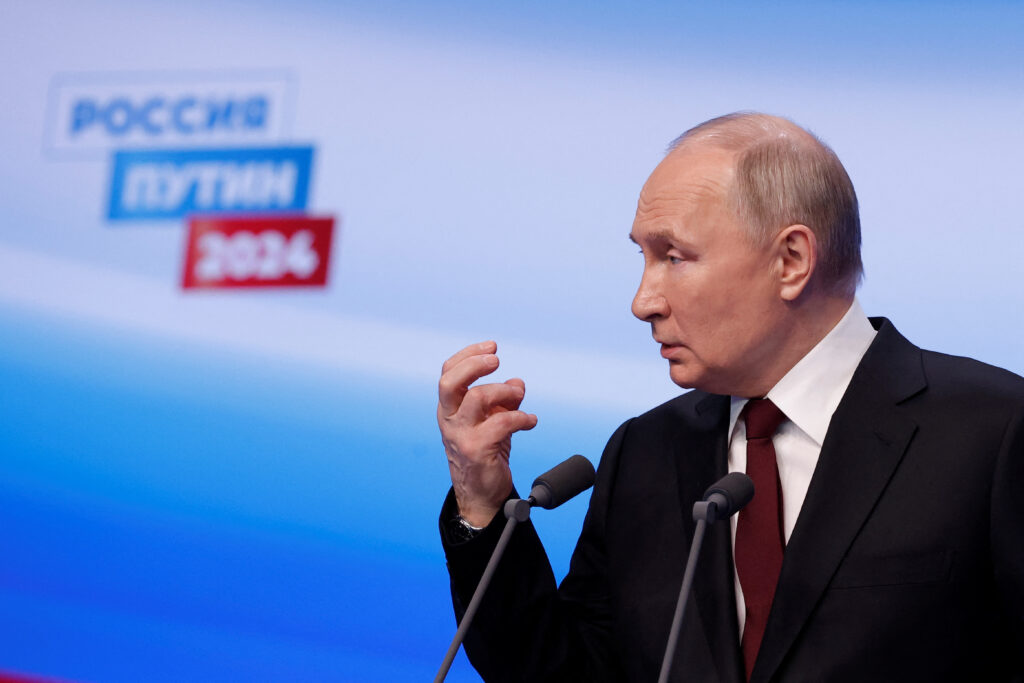
Source: Atlantic Council
His government is criticised for the concentration of wealth among a small group of oligarchs that are closely connected. Allegations include embezzlement, improper allocation of public resources and personal wealth benefits.
Putin is closely linked to the rise of oligarchs in Russia. A notable example is the Rosneft case - the state-run oil company that has been controlled by oligarchs, closely connected to him. That involved assets, such as oil and gas firms, frequently through suspicious privatization transactions.
Another example is Sergei Magnitsky’s case. Magnitsky, a Russian attorney, uncovered a major tax fraud operation involving top officials, but he was taken into custody, tortured, and eventually passed away in 2009.
The international community, particularly the United States, reacted by passing the Magnitsky Act in 2012, which sanctioned Russian officials involved in corruption and abuses of human rights. The case brought attention to systemic corruption within the Russian government.
4. Kim Jong Un - The Supreme Leader of North Korea (2011-present)
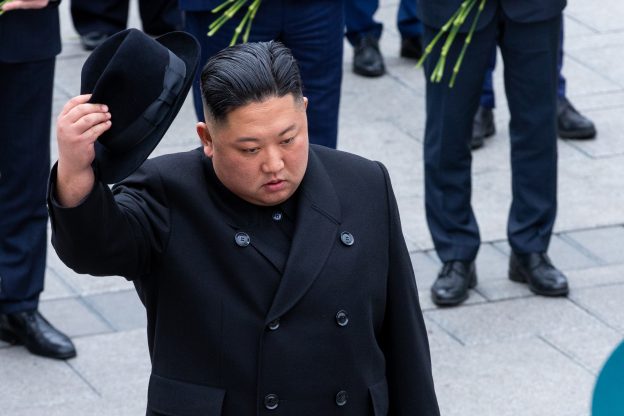
Source: The Diplomat
Kim Jong Un, the leader of North Korea, has faced allegations of widespread corruption within his government such as abuse of power, with state resources often used to benefit the ruling elite. Corruption involves redirecting funds from international aid and exploiting the nation's military and business sectors - all allowing Kim's inner circle to amass personal wealth.
Another facet of perceived corruption in North Korea is the regime’s methods for funding its nuclear and missile programs. Despite facing international sanctions intended to limit the proliferation of weapons of mass destruction, some experts still believe the regime engages in illegal activities like counterfeiting currency, conducting cyberattacks, and engaging in arms sales to finance its military initiatives.
These reports, however, are founded on testimonies from defectors and external investigations, which makes the allegations challenging to be confirmed. Despite these allegations, his government remains highly centralized, with little transparency.
Most Corrupt Leaders of All Time With Numbers
Transparency International is a non-profit organization that aims to tackle and document corruption across the world. It regularly produces assessments of countries, their levels of corruption and, in 2004, published a list of the most corrupt leaders in the world.
The list is based on the amount various individuals embezzled whilst holding positions of power in their respective countries. Of course, not all of them are caught and there could be more to the list. If you wish to check further details on the most up-to-date reports, visit their list for 2023.
Below are some examples of corrupt leaders throughout the history as published in the Global Corruption Report 2004, according to the amount of embezzlement.
1. Mohamed Suharto - President of Indonesia (1967–1998)
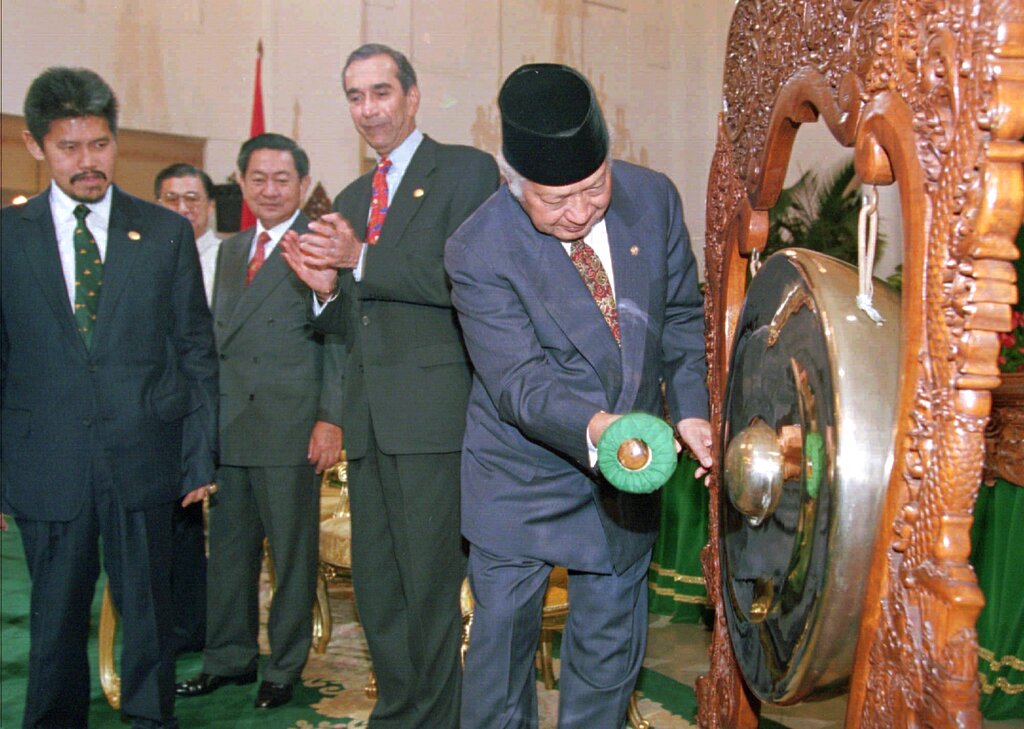
Funds Embezzled: Up to $35 billion
Mohamed Suharto was the second president of Indonesia and served for a record 31 years from 1967 to 1998. Suharto oversaw a military dictatorship, which evolved into an authoritarian regime built on his own cult of personality and ended his rule with a personal net worth of $38 billion.
Following an economic downturn in 1997 that Indonesia was slow to recover from, prominent politicians started blaming Suharto and protests began in earnest that year. After mounting pressure and desertion by his political allies in May 1998, Suharto resigned.
He has been investigated for corruption numerous times since his resignation and was accused of embezzling $571 million of government funds through various personal charity foundations. Other lawsuits in Indonesia have sought to order Suharto to repay up to $1.5 billion in scholarship funds that supposedly disappeared during his tenure.
Suharto was never prosecuted, partly because he was said to be too ill to stand trial but also because he was still well-regarded by a large proportion of the population. He died on 27th January 2008 and remains a controversial figure in the country; some regard him as a hero whereas others see him as the main source of corruption in Indonesia.
2. Ferdinand Marcos - President of the Philippines (1972–1986)
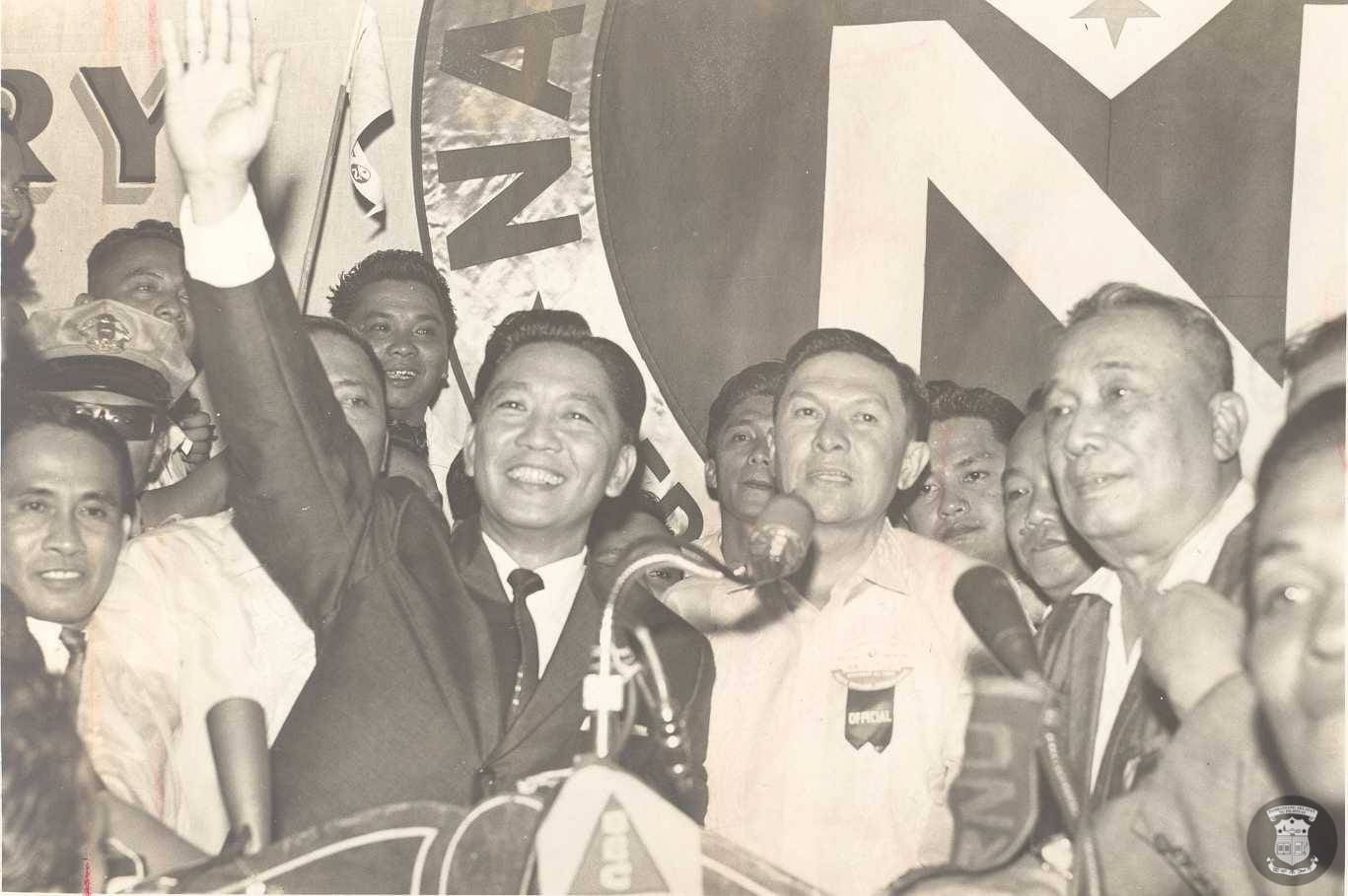
Funds Embezzled: $7.5 billion
Ferdinand Marcos entered politics in the late 1940s after World War 2. He ran for election in 1965 and won, partially due to his claims of bravery and achievement during the war. During his second term from 1969-1972, Marcos oversaw a debt crisis resulting from his policy of high public expenditure on infrastructure projects. This led to civil interest and rising political opposition which caused Marcos to declare martial law, placing him in sole charge of the country.
This period lasted until 1986 when his reign as leader ended. In 1986, Marcos was forced to call a snap election due to his rising unpopularity and coup threats, which ended in complex indecision as various vote counts declared different winners. A revolution followed and Marcos was forced to flee to Hawaii.
Marcos took with him around $717 million in cash, numerous crates of valuable physical objects, gold, and deposit slips totalling $124 million. All of this was amassed illegally during his time in power. In all, he is thought to have stolen $5-$10 billion from the Philippines Central Bank. He died in January 1995 without facing justice.
3. Viktor Yanukovych - President/Prime Minister of Ukraine (2002-2014)
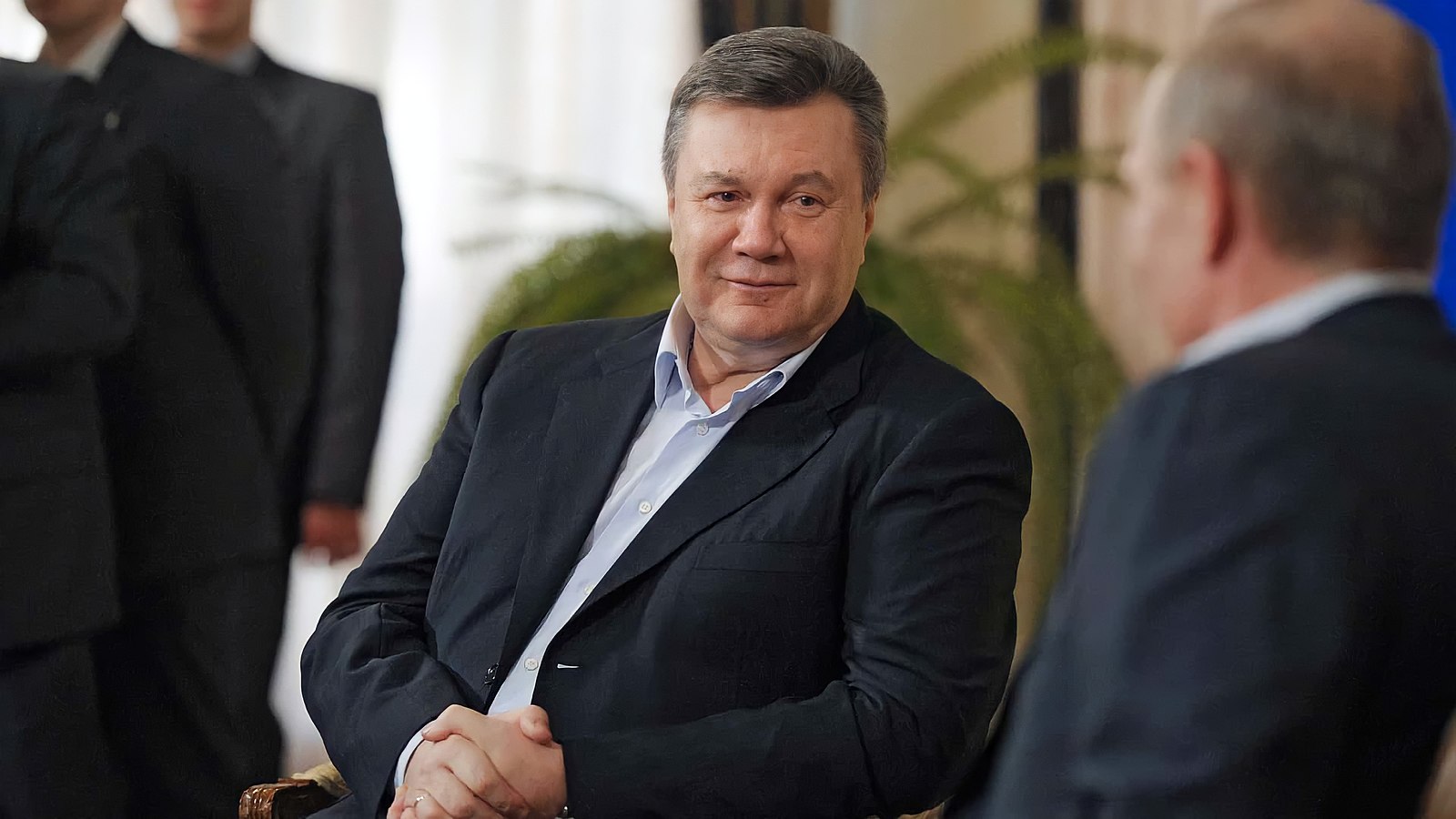
Funds Embezzled: $5 billion
Viktor Yanukovych held the positions of Prime Minister and President of Ukraine variously from 2002 to 2014. During his time in office, he became increasingly sympathetic to his affiliation with Russia and represented the interests of big business in Ukraine. After the Ukrainian parliament voted to sign documents to more closely tie the country to the EU, Yanukovych instead decided to reject the vote at the last minute under pressure from Russia.
This angered the majority of the Ukrainian populace, who were mostly anti-Russian influence, and led to the Euromaidan protests. Yanukovych fled to Russia and entered a self-imposed exile. On 22nd February 2014, the Ukrainian parliament voted in favour of his impeachment, leading to the discovery of his embezzlement activities.
Amongst a host of corrupt actions, Yanukovych was found to have used $220 million of state funds to set up a private communication company, stole $1.5 billion in assets from the state including property, and generally used public funds for his enjoyment.
4. Mobutu Sese Seko - President of Zaire (1965–1997)
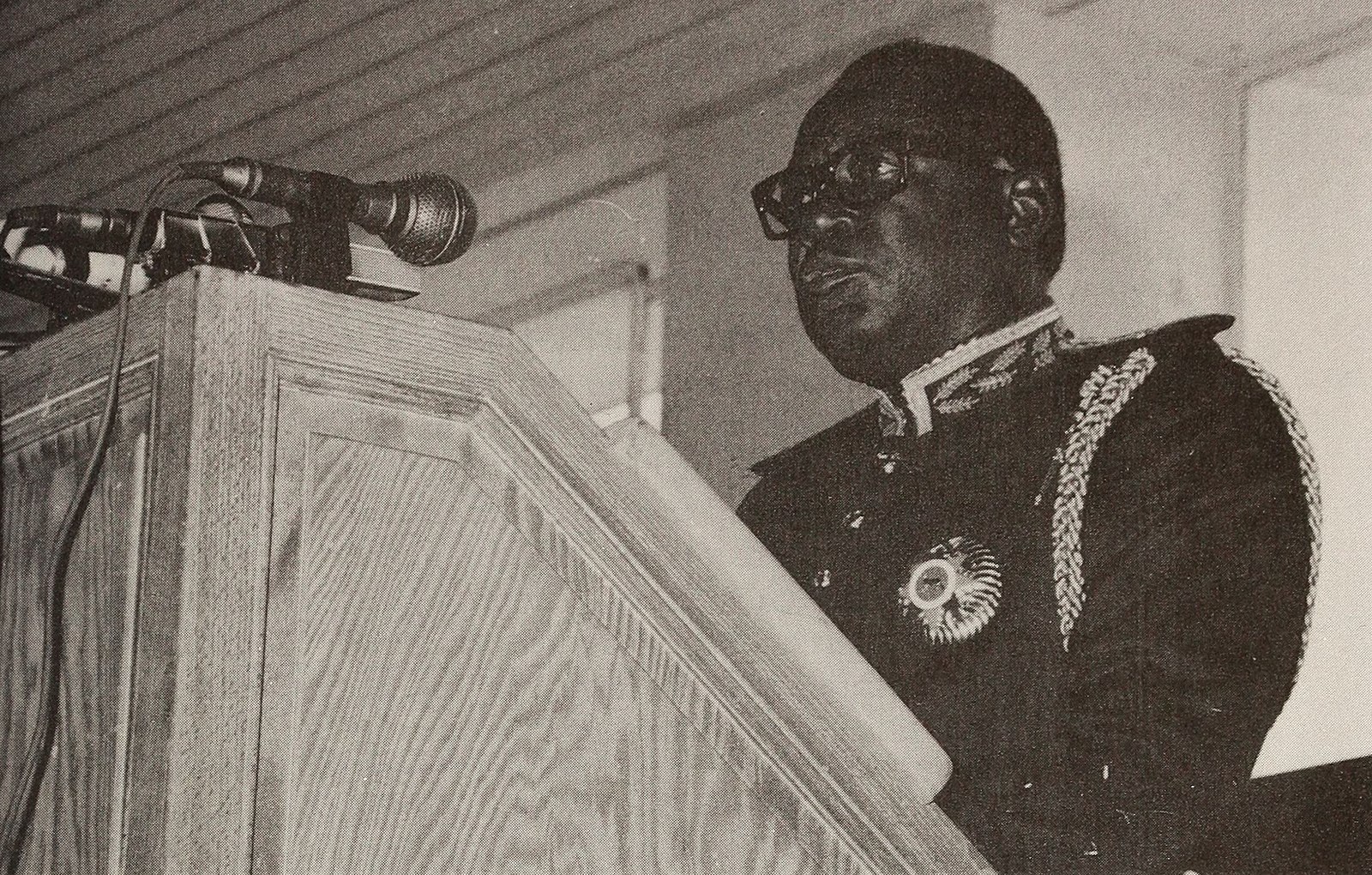
Funds Embezzled: $5 billion
Mobutu Sese Seko was president of Zaire, now known as the Democratic Republic of the Congo, from 1965 to 1997. After gaining independence from Belgium in 1960, Zaire went through a period of political turmoil during which Seko was the Chief of Staff of the Army. With the backing of the USA, Seko overthrew the elected left-wing leader Patrice Lumumba and installed his own autocratic government.
Known for his extravagant shopping sprees in Paris, speculation about his corruption was never far from the truth. Conservative estimates state that Seko embezzled $5 billion directly from the state’s purse, using the money to fund a luxurious lifestyle and buy gifts for his cronies. He is considered to be one of the richest world leaders of all time and was eventually deposed by a military coup in 1997. He died months later of prostate cancer without being prosecuted.
5. Sani Abacha - President of Nigeria (1993–1998)
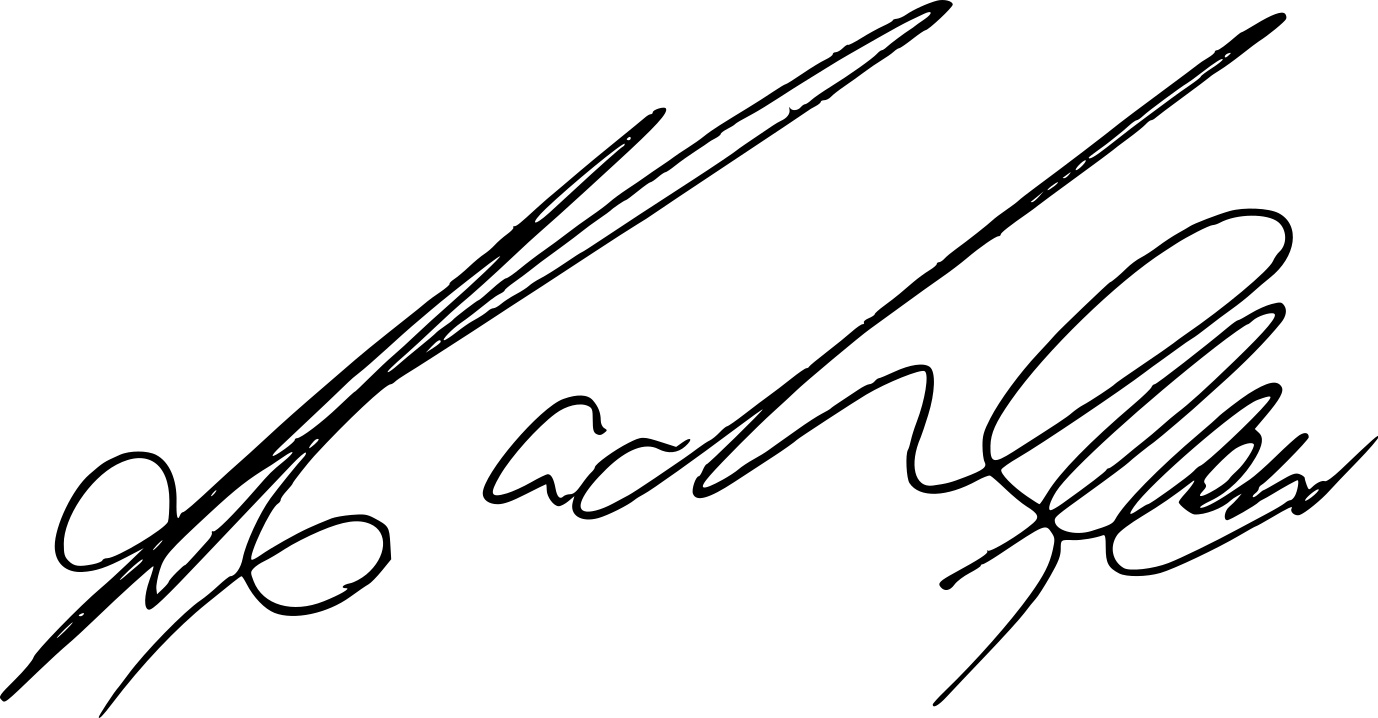
Funds Embezzled: $2-$5 billion
Like many of the people on this list, Sani Abacha began his career as a military officer and became leader of Nigeria after seizing power in 1993 following a coup d’etat. He ruled for a shorter period than others due to his death in 1998, overseeing a strengthening of Nigeria’s economy but a violent approach to discipline.
Because of Nigeria’s unprecedented economic growth, the amount of money flowing through the country dramatically increased. This presented an opportunity for Abacha that he couldn’t resist. By setting up fake government funding requests, Abacha directly stole money sent from Nigeria’s central bank, laundered it abroad, and deposited it in offshore bank accounts. Estimates vary but in Jersey alone, they discovered an account holding $267 million linked to Abacha.
6. Najib Razak - Prime Minister of Malaysia (2009-2018)
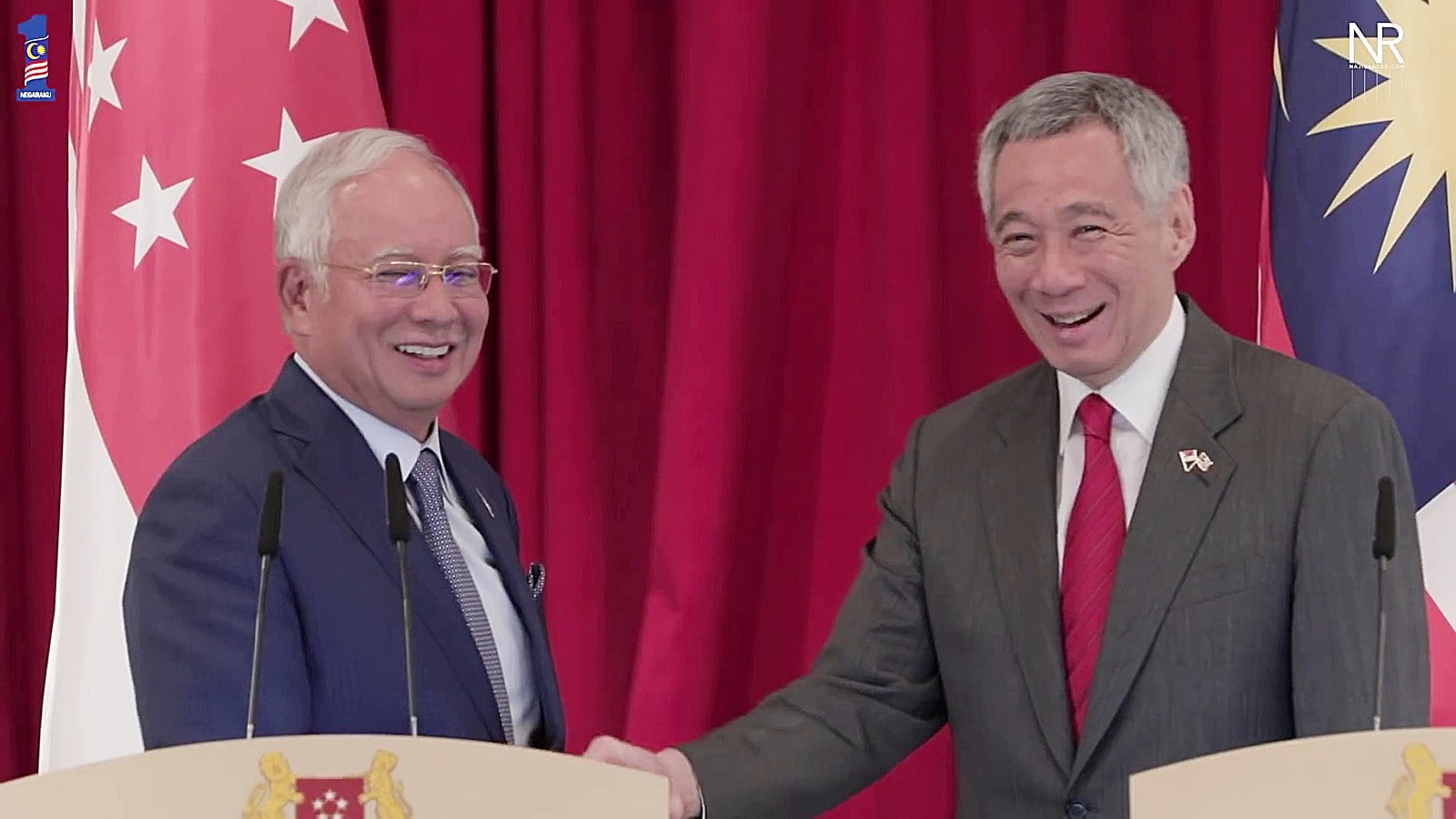
Funds Embezzled: $4.5 billion
Najib Razak had been a politician in Malaysia for decades before he was elected as prime minister in 2009. During his time in power, he opened the country to more foreign investment and pursued a strategy of imprisoning his political opponents.
Due to his links with the 1Malaysia Development Berhad investment firm, which had been accused of embezzling money from the Malaysian sovereign wealth fund, Razak began to face rising criticism in 2013.
After he lost a general election in 2018, he was arrested by Malaysian anti-corruption investigators. In all, Razak was found guilty of embezzling $1 billion from Malaysia’s wealth fund with more expected held in assets. He was jailed in 2022 for 12 years and fined $45 million.
7. Slobodan Milosevic - President of Serbia/Yugoslavia (1989–2000)
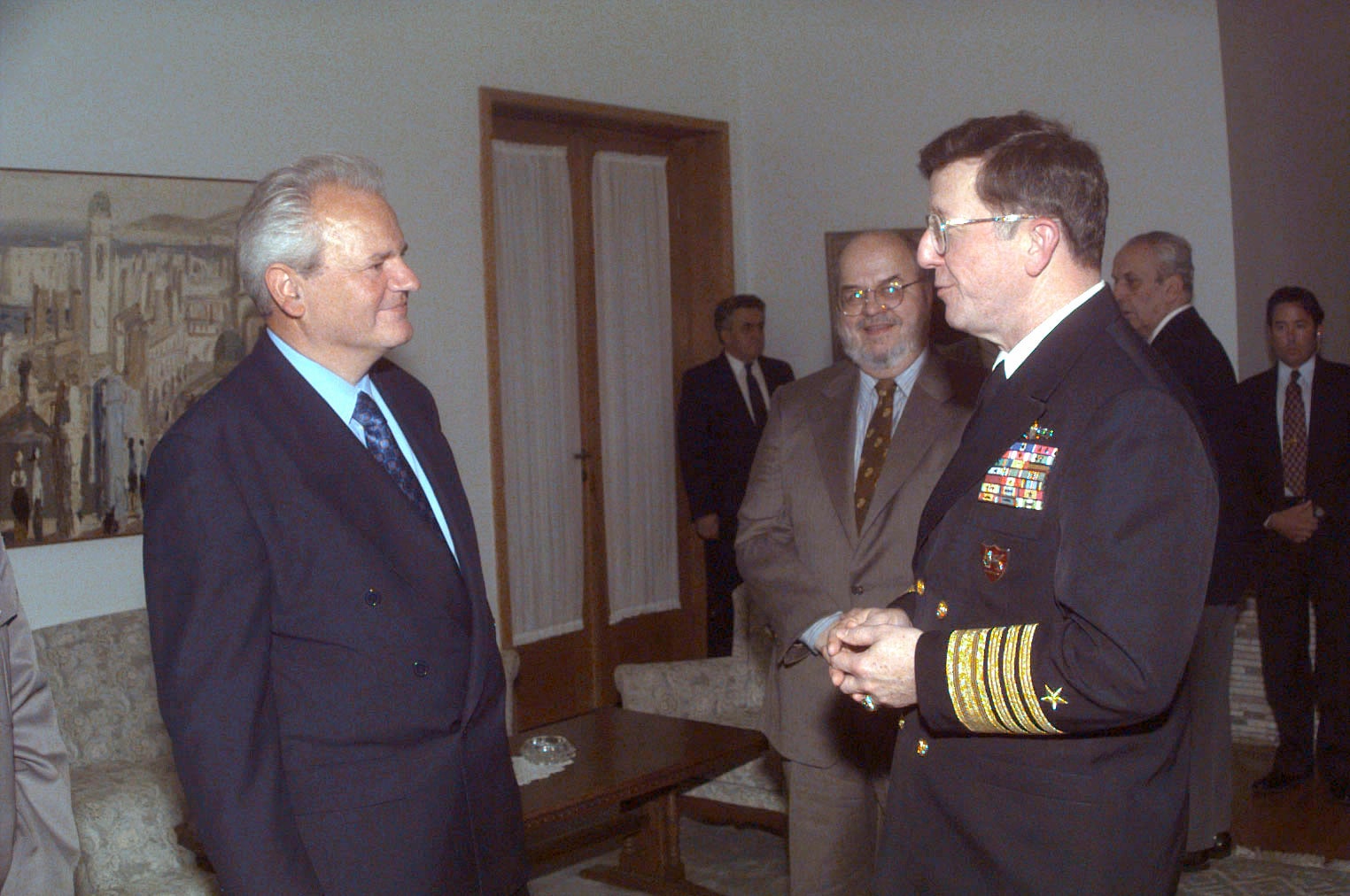
Funds Embezzled: $1 billion
Milosevic was a key figure during the bloody breakup of Yugoslavia. First rising to power as the president of Serbia in 1989, Milosevic became the president of the Federal Republic of Yugoslavia in 1997. The politics of Yugoslavia was, and still is, incredibly complex with multiple ethnic groups involved in conflict with each other. Milosevic supported ethnic Serbs and aided in negotiating an end to the Bosnian War in 1995.
He was put on trial for war crimes by the UN whilst still in power in 1999, eventually losing power in the 2000 elections. He was arrested soon after by Yugoslav authorities on charges of corruption and embezzlement with his trial lasting five years. He died in prison in 2006.
A Snapshot Of Global Corruption
While many nations have taken steps to combat corruption, challenges continue because of fragile institutions, insufficient transparency, and a lack of accountability. Corruption cases are frequently reported in both developed and developing countries, often involving government officials, business elites, and criminal networks. Corruption leads to slower economic growth, inequality, and a decline in public confidence in government institutions, rendering it a significant barrier to long-term development and social justice.
Corruption was a huge problem throughout the second half of the 20th century. Many countries were gaining independence, power vacuums sucked in individuals with bad intentions, and there lacked any robust national-level anti-corruption watchdogs. As countries in Africa, South America, and Asia grappled with their systems of governance, many managed to settle into relatively transparent power structures.
And this is reflected in the latest Transparency International global corruption report. According to them, corruption levels have stabilized, remaining the same for the past ten years after a period of falling corruption from 2000-2010. A reduction in anti-corruption measures has meant that even in established democratic countries, corruption persists at all levels of governance. What remains clear is that areas with dictators, autocrats, or one-party systems in place will continue to see the most rampant levels of corruption.
corruption in politics, education, and other sectors. In 2004, they reported on (as of then) the rankings of the world's most corrupt leaders2, by order of funds embezzled. They have not updated this list since 2004, with most of their reports focusing on whole countries rather than individual leaders. They do regularly update the list of the world's most corrupt countries.
|
Name |
Position |
Funds embezzled |
|
President of Indonesia (1967–1998) |
$25 billion |
|
|
President of the Philippines (1972–1986) |
$7.5 billion |
|
|
3. Viktor Yanukovych |
President/Prime Minister of Ukraine (2002–2014) |
$5 billion |
|
President of Zaire (1965–1997) |
$5 billion |
|
|
5. Sani Abacha |
President of Nigeria (1993–1998) |
$2-$5 billion |
|
6. Najib Razak |
President of Malaysia (2009–2018) |
$4.5 billion |
|
President of Serbia/Yugoslavia (1989–2000) |
$1 billion |
If reading about the devious nature of governance has interested you, then check out our article on the world’s most notorious despots.
Sources: Transparency International
1. All sums are estimates of alleged embezzlement and appear in U.S. dollars.
2. Defined as former political leaders who have been accused of embezzling the most funds from their countries over the past two decades.
About the author







